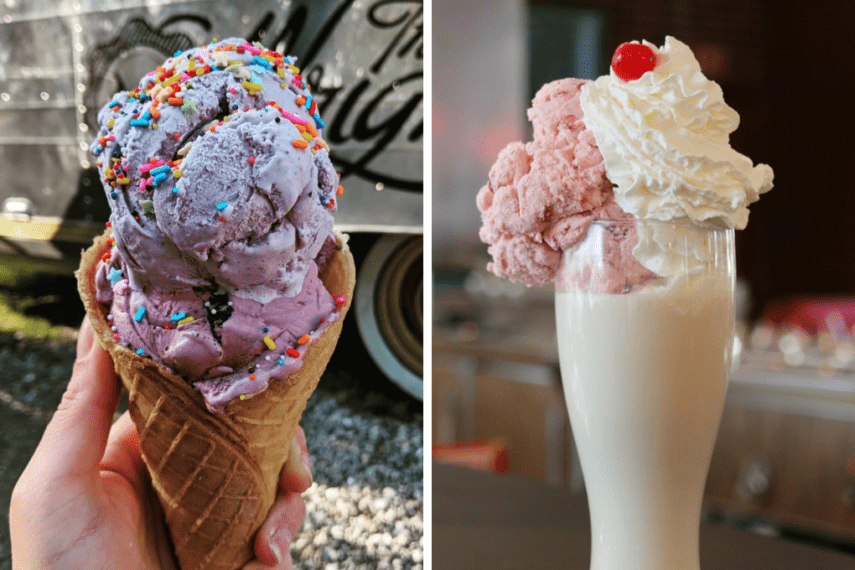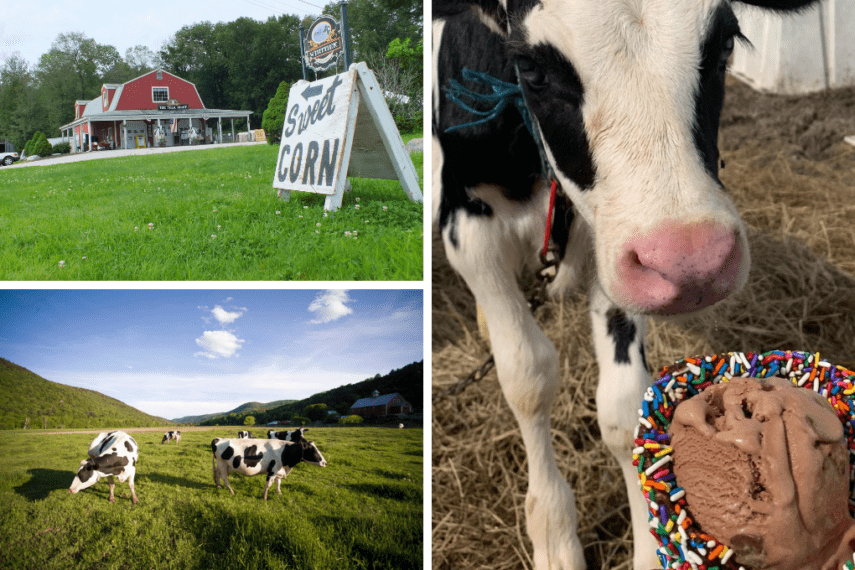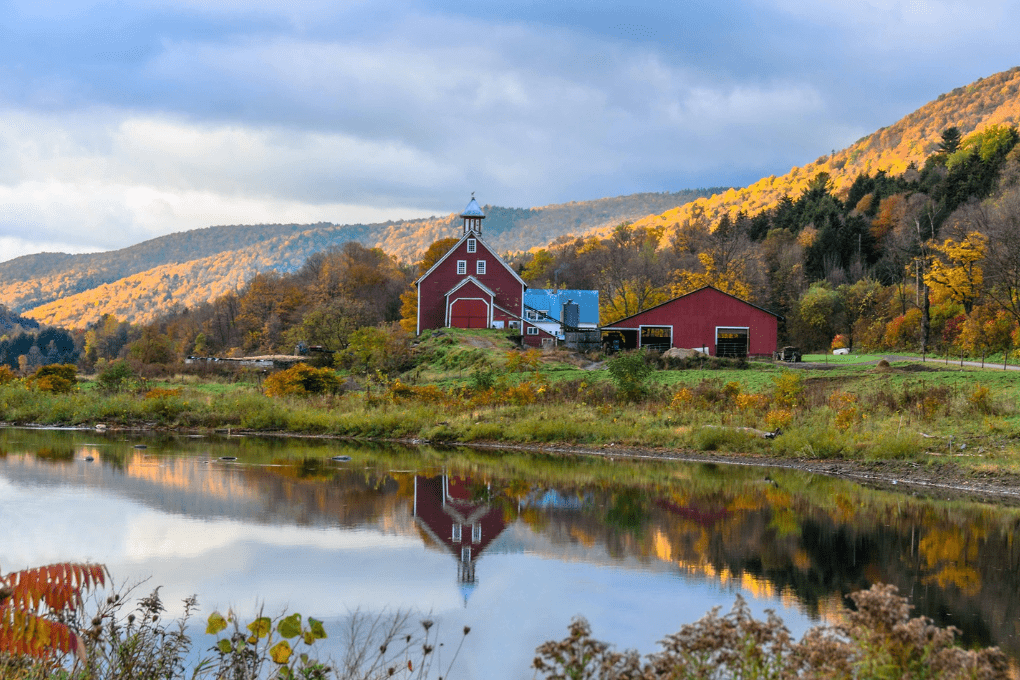
What would the consequences be if we no longer had dairy farms in New England?
Loss of Idyllic Scenery and Green Space
New England is known for its idyllic red barns and farmhouses, rolling green hills surrounded by forests, and fields. In just Massachusetts alone, about 113,600 acres of land are protected as open space used for dairy farming. This open space can look like green spaces, fields used to grow hay, fields used for grazing, barns, and fences. As dairy farms disappear from our local landscape, they can be replaced by buildings, parking lots, and housing. Not only does this change the scenery, but the environment as well. Pavement and other impermeable surfaces retain heat, effect water quality, and can emit pollutants. Cows are often blamed for increasing greenhouse gas emissions, but replacing dairy farms with parking lots threatens the planet more than the cows ever could.
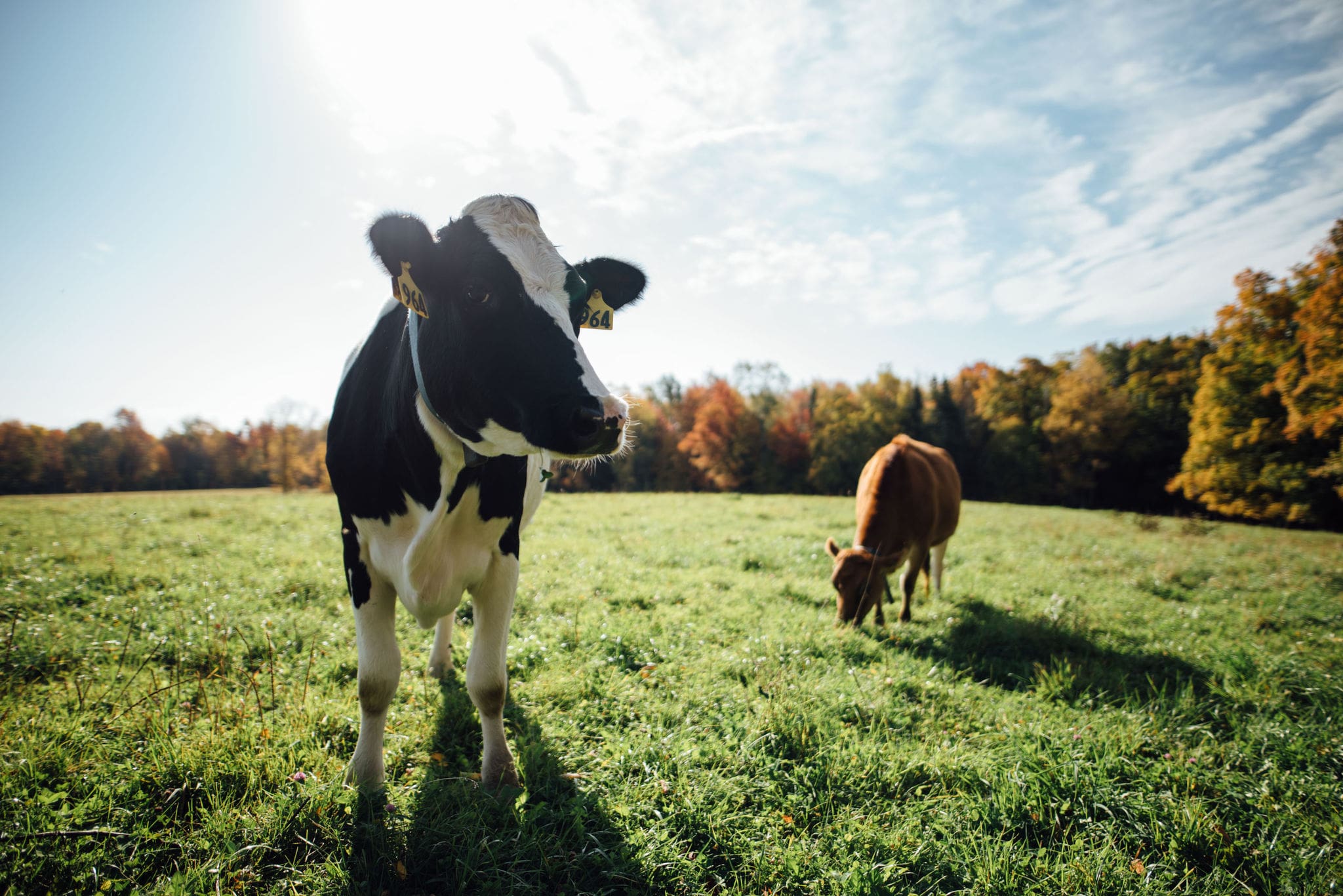
Loss of Manure to Grow Food
If dairy cows were removed from New England, our local farmers would lose a crucial source of soil-building manure. Manure is a type of organic waste collected from many types of animals, including dairy cows. Crops grown for human and animal consumption require fertile soil, and without manure from animals to fertilize crops, it becomes necessary to turn to synthetic fertilizers to grow crops. Synthetic fertilizers are produced and shipped using petroleum fuels and are more greenhouse gas intensive. Manure from dairy cows can actually increase the health and carbon-capturing ability of soil. Without dairy cows, the soil health in New England could be compromised.
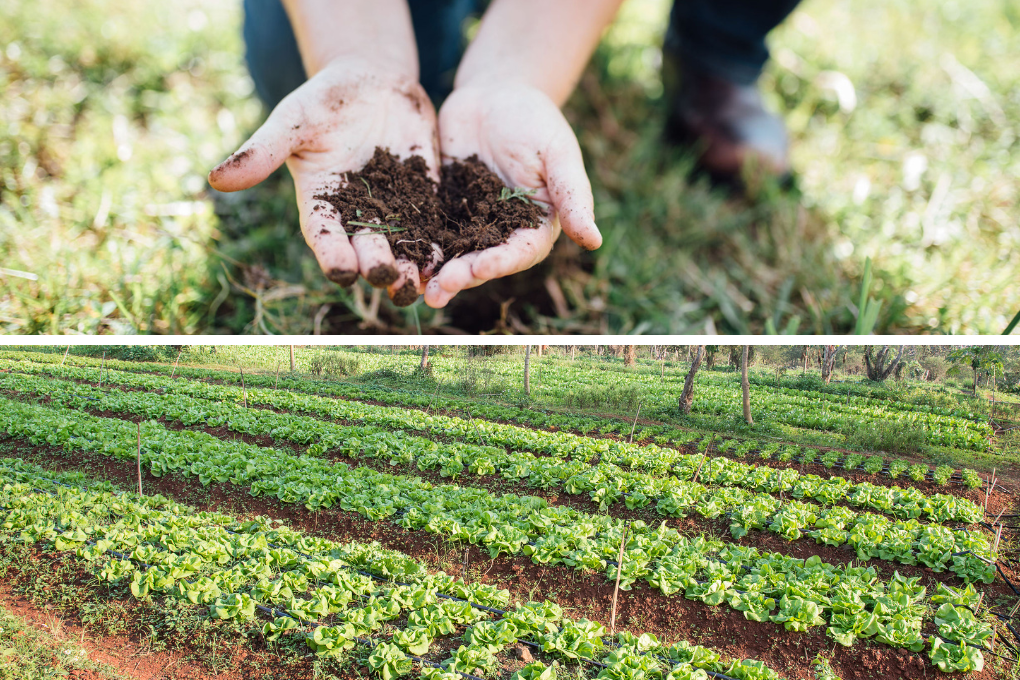
Loss of Link in Circle of Recycling Spent Grains and Other Byproducts
Cows can eat many waste or byproducts from other industries that would otherwise be thrown out. In turn, cows produce and provide nutritious foods for humans. One thing that cows can eat is spent grain, a byproduct from beer production that might otherwise go to a landfill. According to the Brewers Association, there are currently 665 craft beer breweries in New England. These breweries can provide a valuable food source for their cow neighbors, while reducing waste. Losing dairy cows means losing a link in the circle of recycling waste products from local beer production as well as byproducts from other industries such as pulp, peels, pits, almond hulls, and more. These waste products would instead end up landfills increasing the negative consequences and hazards that come with them.
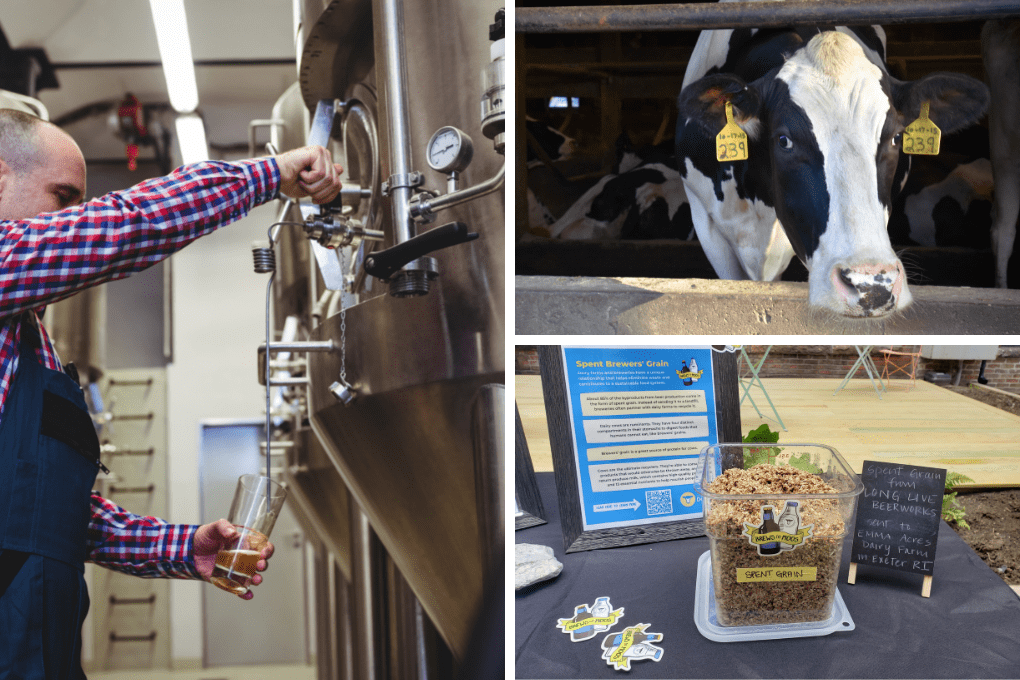
Dairy cows and dairy farms add many benefits to New England and the people who live here. From environmental to nutritional and scenic, dairy cows are multifaceted and vital to our landscape. Without dairy cows, a less scenic, less sustainable, and less green New England awaits us.
Please support your local dairy farmers by purchasing dairy products, visiting their farm stands, and helping to educate others about their important contributions to our region.

